Finding a Mental Health Facility in Idaho
Mental health is a vital aspect of overall well-being. Seeking professional help when you or your loved one is struggling with mental health challenges is a brave step, but choosing the right mental health facility in Idaho can feel overwhelming. With the growing awareness of mental health issues, Idaho now offers an increasing number of treatment centers—yet not all are created equal. This guide highlights the essential factors to consider when selecting the best mental health facility in Idaho. By focusing on aspects like accreditation, treatment programs, staff qualifications, and more, you’ll gain the clarity needed to make an informed choice that prioritizes care and recovery.
Why Careful Selection Matters
Choosing the right mental health facility in Idaho is much more than picking a name off a list—it’s a critical decision that can shape the trajectory of someone’s recovery journey. It’s about finding a place where the treatment programs are personalized to meet individual needs, ensuring that every aspect of care is tailored for the best outcomes. It’s also about working with dedicated staff who bring not only expertise but also compassion to their roles, creating a safe and supportive atmosphere for patients. The environment itself plays a vital role, offering a space that fosters healing, growth, and a sense of hope. The right choice can lead to quicker recovery, better long-term mental health outcomes, and a supportive experience that empowers individuals every step of the way, setting them up for lasting success and resilience.
Key Considerations When Choosing a Mental Health Facility in Idaho
When exploring options for mental health care, it’s essential to take the time to carefully evaluate key factors that can significantly impact the quality of care you or your loved one receives. Start by researching the qualifications, credentials, and experience of the providers to ensure they specialize in the areas of care you’re seeking. Consider the range of treatment options they offer, such as therapy styles, medication management, or holistic approaches, and determine if these align with your specific needs, values, or preferences. Additionally, think about practical considerations like location, availability, cost, and whether they accept your insurance. Taking the time to ensure the right fit can not only provide a higher level of support but also promote effective treatment and long-term well-being, ultimately fostering a healthier, more balanced life.
Accreditation and Licensing
Reputable mental health facilities meet strict quality standards established by recognized accrediting organizations, such as The Joint Commission or CARF International. These standards ensure that the facility adheres to best practices in clinical care, safety protocols, and operational efficiency. Accreditation is a clear indicator of a facility’s commitment to providing effective treatment, supporting patient recovery, and delivering high-quality care in a safe and professional environment.
- State Licensure: Ensure the facility is properly licensed by Idaho’s Department of Health and Welfare, which regulates the quality and safety of care provided. You can visit their official website to access a comprehensive database of certified facilities, allowing you to verify the licensure and confirm the facility meets all state requirements. This step is crucial to ensure you or your loved one will receive care in a regulated and trustworthy environment.
- Additional Certifications: When choosing a facility, check for accreditations from trusted entities such as The Joint Commission or the Commission on Accreditation of Rehabilitation Facilities (CARF). These certifications signify that the facility meets high standards for quality care, safety, and patient outcomes. They are awarded only after rigorous evaluation processes and demonstrate the facility’s commitment to providing excellent, reliable services.
Treatment Approaches
Mental health conditions can differ greatly from one individual to another, with unique challenges, symptoms, and needs. This is why it’s essential to take the time to explore the methods, therapies, and approaches offered by a facility. Understanding their treatment options, such as counseling techniques, medication plans, or holistic therapies, helps ensure that the care provided aligns with the specific needs of each person, offering the best chance for recovery and long-term well-being.
- Traditional Therapies: Evidence-based approaches such as cognitive-behavioral therapy (CBT), dialectical behavior therapy (DBT), or psychotherapy are staples of many programs. These therapies focus on helping individuals identify and address negative thought patterns, regulate emotions, and develop healthier coping mechanisms. They are widely recognized for their effectiveness in treating a variety of mental health conditions and are often customized to meet the unique needs of each person.
- Alternative Approaches: Facilities that incorporate art therapy, mindfulness, or animal-assisted therapy could provide a more tailored and effective experience for individuals. Art therapy allows participants to express emotions creatively, mindfulness practices promote stress reduction and mental clarity, while animal-assisted therapy fosters emotional support and connection through interactions with trained animals. These approaches can complement traditional methods, creating a more holistic path to healing and growth.
- Customized Care: Ensure the treatment plan is tailored to address specific needs and goals, offering a combination of approaches such as individual counseling, group therapy, and specialized programs designed to provide holistic support for lasting recovery.

Specialized Programs
If you’re seeking care for specialized issues, such as addiction, trauma, eating disorders, or PTSD, it’s important to find programs specifically designed to address those conditions. Specialized programs often have tailored approaches, experienced professionals, and evidence-based treatments to meet the unique needs of individuals facing these challenges, ensuring a more personalized and effective path to recovery.
- Facilities offering targeted treatment plans often have staff with highly specialized expertise, allowing them to address specific conditions or needs with advanced techniques and personalized care.
- These programs often leverage dedicated resources, such as trained professionals and specialized tools, along with evidence-based interventions designed to address specific needs. This combination helps deliver effective and measurable outcomes, ensuring participants receive targeted support that truly makes a difference.
Staff Qualifications
The quality of care relies heavily on the qualifications, experience, and dedication of the facility’s team. A well-trained and knowledgeable staff ensures that residents receive the attention, support, and services they need to maintain their well-being and quality of life.
- Qualified Specialists: Take the time to verify the credentials of therapists, psychiatrists, nurses, and other staff working at the facility. Look for licenses, certifications, and relevant experience in their fields. Many facilities provide detailed bios on their websites to highlight their team’s expertise, including their educational background, years of practice, and areas of specialization. This information can help you feel more confident in the level of care provided.
- Staff-to-Patient Ratio: Look for facilities with a low staff-to-patient ratio, as this often means each patient receives more personalized and attentive care. A lower ratio allows staff to spend more time addressing individual needs, ensuring a higher quality of care and a better overall experience for patients.
Location and Amenities
The facility’s location and surrounding environment can play a significant role in the recovery process, as a calm and supportive setting can help reduce stress and promote healing. Proximity to nature, quiet surroundings, and access to necessary resources all contribute to creating an environment that fosters physical and emotional well-being during recovery.
- Accessibility: Some individuals prefer a nearby facility for convenience, allowing them to stay close to home and maintain connections with their local support network. Others, however, benefit more from a tranquil, secluded environment where they can focus on their personal needs and recovery without external distractions.
- Comfortable Accommodations: Look for inviting, well-maintained settings that provide a warm, welcoming atmosphere. Consider options that offer both private and shared rooms, allowing flexibility to suit individual preferences. Pay attention to cleanliness, quality of furnishings, and amenities to ensure a relaxing and enjoyable stay.
- Additional Amenities: Many facilities go beyond basic services to enhance the overall experience for residents. These might include recreational areas such as game rooms, lounges, or outdoor spaces, fitness centers equipped with modern exercise equipment, or even holistic wellness services like yoga classes, meditation sessions, or spa treatments. These added features aim to promote relaxation, health, and a sense of community.
Insurance Options and Financial Assistance
Mental health care can be costly, often placing a financial burden on individuals and families. This makes financial considerations a key factor when seeking therapy, counseling, or other mental health services, as the expenses can quickly add up without proper support or insurance coverage.
- Verify Coverage: Check with both your insurance provider and the facility to fully understand what services are covered, including any limitations, exclusions, or out-of-pocket costs. This can help avoid unexpected expenses and ensure you’re prepared for the financial aspects of your care.
- Payment Plans: Many facilities provide sliding-scale fees based on income or offer financial assistance programs to ensure treatment is accessible for patients who are uninsured or underinsured. These options are designed to ease the financial burden, allowing individuals to focus on their recovery without the added stress of overwhelming medical bills.
Family Support and Aftercare
Mental health recovery doesn’t occur in isolation. It’s a journey that often requires the support of loved ones and a strong network. Many facilities recognize this and actively involve families in the recovery process, offering education and resources to help them understand and support their loved one’s needs. Additionally, these facilities emphasize the importance of robust aftercare planning, ensuring that individuals have access to ongoing support, therapy, and resources to maintain their progress and prevent relapse after leaving the program.
- Family Inclusion: Ask whether family therapy or education sessions are part of the treatment model. Including family in the process can help build a stronger support network for patients, improve communication, and ensure that loved ones have the tools and knowledge to provide ongoing support after treatment.
- Aftercare Services: Look for facilities that provide comprehensive follow-up resources such as support groups, ongoing therapy sessions, or access to outpatient services. These programs are designed to help individuals transition smoothly back into daily life while maintaining the progress made during treatment. Effective aftercare promotes long-term recovery by offering continued guidance, accountability, and a support network to address challenges that may arise after treatment ends.
A Thoughtful Decision Can Change Lives
Navigating the process of finding the right mental health facility in Idaho might feel daunting, but with careful consideration, it becomes an empowering step toward recovery. Remember to evaluate each aspect of a facility, from its licensing and treatment approaches to insurance coverage and family involvement. If you’re ready to take the next step, start with these key questions to help further refine your selection process:
- Does this facility specialize in treating the specific condition you’re seeking help for, and do they have experienced professionals or tailored programs designed to address your needs effectively?
- Are the treatment methods supported by evidence-based research and tailored to meet the unique needs and circumstances of each individual?
- Will the care team provide personalized attention and tailored support throughout every stage of the recovery process to ensure the best possible outcomes?
Selecting the right mental health care facility is a powerful step toward living a healthier, more fulfilled life. Trust your instincts, ask questions, and don’t settle for less than the care you or your loved one deserve.
Conclusion
In conclusion, choosing the right mental health facility in Idaho is a crucial decision that can have a profound impact on one’s life. By carefully considering factors such as accreditation and licensing, treatment approaches, specialized programs, staff qualifications, location and amenities, insurance options and financial assistance, and family support and aftercare services, individuals can ensure they receive the best possible care for their specific needs. It may feel overwhelming or daunting at first, but by asking important questions and trusting your instincts, you can make an informed decision that leads to long-term progress and well-being. Remember that seeking help is a sign of strength and courage, and with the right support system in place, positive change is possible. So don’t hesitate to reach out to our compassionate staff by calling 1 (208) 343-2737 or clicking Recovery Ways Idaho. You deserve the best care possible, and by carefully considering all aspects of a mental health facility, you can make an empowered decision that positively impacts your or your loved one’s journey towards recovery. The right mental health facility in Idaho will provide personalized, evidence-based treatment in a comfortable and supportive environment, with comprehensive aftercare services to ensure sustained progress. Trust yourself and don’t settle for anything less than the quality care you deserve.





